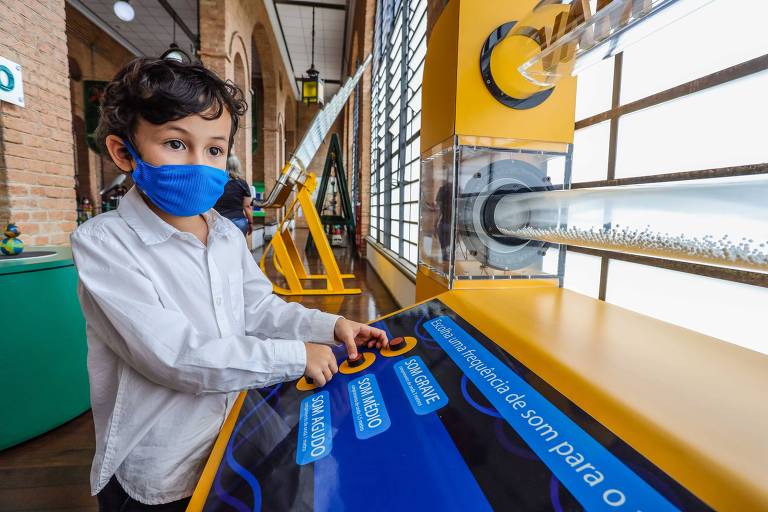Miro also created a clubhouse to help colleagues interested in projects that save the world
Feb.21.2022
It is possible that, one day, an asteroid unknowingly collides with our planet, Earth, and… BOOM! It would be the end of humans and many other species. This is how countless dinosaurs went extinct 66 million years ago. How to prevent this from happening? If you ask 5-year-old Miro Latansio Tsai that question, he knows exactly where to start: you need to hunt for asteroids! And Miro is a notorious asteroid hunter!
Miro has always been passionate about nature, space, science and math, says his mother, lawyer Carla. At the age of 2, he already knew the names of all the planets in the Solar System (do you remember all of them?). At 4, Miro drew a picture of the Big Bang and the expansion of the Universe. He recently watched the classic "Cosmos" series from the 1980s, hosted by astronomer Carl Sagan, and learned even more, from supernovas to black holes.

SÃO PAULO,SP, 18.02.2022 - Miro Latansio Tsai
(Foto: Vanessa Carvalho/Brazil Photo Press)
Carla and Jack, Miro's father and business administrator, asked his son if he wanted to take advantage of the time at home, at the beginning of the pandemic, to participate in some projects open to the public of NASA, the American special agency, of the Ministry of Science and Technology and Innovations from Brazil, which today is headed by astronaut Marcos Pontes, and from the IASC, an acronym for International Astronomical Search Collaboration.
One of these projects was precisely the Asteroid Hunt, in which people from all over the world pore over computer images in search of space boulders. "I use the [computer] program Astrometrica to analyze the images, which come from the [Pan-Starrs] telescope in Hawaii," said Miro. By carefully looking at sequences of space images, it is possible, from time to time, to identify small points that appear to be moving — it could be an asteroid! "You have to train, and have a good vision, to be able to find the asteroid, and be patient", explains the space hunter. Miro has already found 15 objects.
Translated by Kiratiana Freelon
Carla and Jack, Miro's father and business administrator, asked his son if he wanted to take advantage of the time at home, at the beginning of the pandemic, to participate in some projects open to the public of NASA, the American special agency, of the Ministry of Science and Technology and Innovations from Brazil, which today is headed by astronaut Marcos Pontes, and from the IASC, an acronym for International Astronomical Search Collaboration.
One of these projects was precisely the Asteroid Hunt, in which people from all over the world pore over computer images in search of space boulders. "I use the [computer] program Astrometrica to analyze the images, which come from the [Pan-Starrs] telescope in Hawaii," said Miro. By carefully looking at sequences of space images, it is possible, from time to time, to identify small points that appear to be moving — it could be an asteroid! "You have to train, and have a good vision, to be able to find the asteroid, and be patient", explains the space hunter. Miro has already found 15 objects.
Translated by Kiratiana Freelon
No comments:
Post a Comment